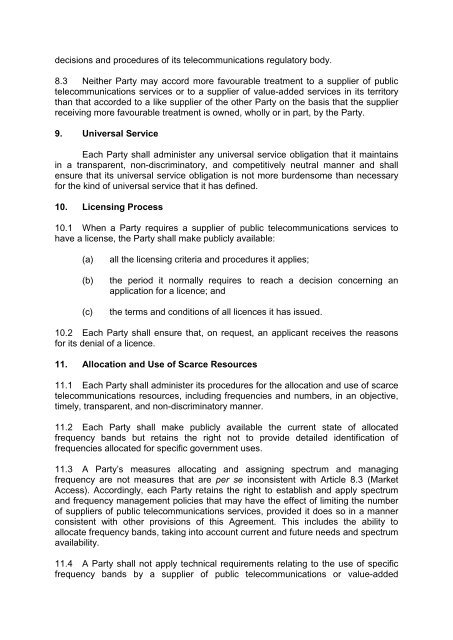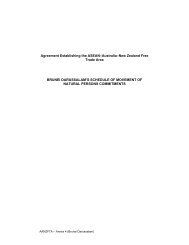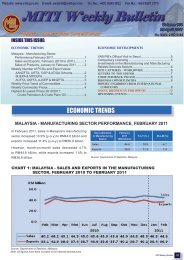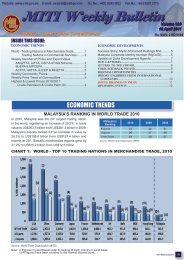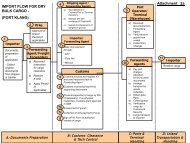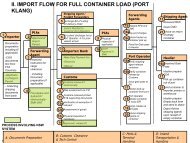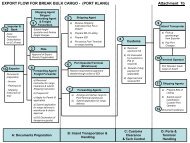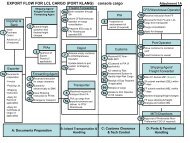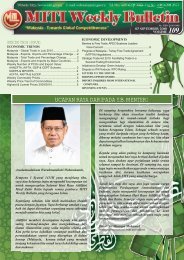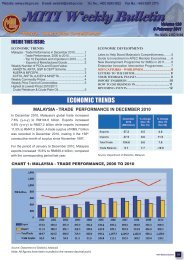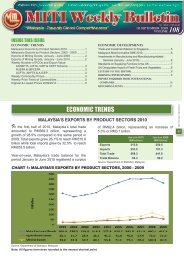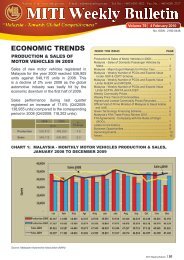comprehensive economic cooperation agreement between ... - MITI
comprehensive economic cooperation agreement between ... - MITI
comprehensive economic cooperation agreement between ... - MITI
You also want an ePaper? Increase the reach of your titles
YUMPU automatically turns print PDFs into web optimized ePapers that Google loves.
decisions and procedures of its telecommunications regulatory body.<br />
8.3 Neither Party may accord more favourable treatment to a supplier of public<br />
telecommunications services or to a supplier of value-added services in its territory<br />
than that accorded to a like supplier of the other Party on the basis that the supplier<br />
receiving more favourable treatment is owned, wholly or in part, by the Party.<br />
9. Universal Service<br />
Each Party shall administer any universal service obligation that it maintains<br />
in a transparent, non-discriminatory, and competitively neutral manner and shall<br />
ensure that its universal service obligation is not more burdensome than necessary<br />
for the kind of universal service that it has defined.<br />
10. Licensing Process<br />
10.1 When a Party requires a supplier of public telecommunications services to<br />
have a license, the Party shall make publicly available:<br />
(a) all the licensing criteria and procedures it applies;<br />
(b) the period it normally requires to reach a decision concerning an<br />
application for a licence; and<br />
(c) the terms and conditions of all licences it has issued.<br />
10.2 Each Party shall ensure that, on request, an applicant receives the reasons<br />
for its denial of a licence.<br />
11. Allocation and Use of Scarce Resources<br />
11.1 Each Party shall administer its procedures for the allocation and use of scarce<br />
telecommunications resources, including frequencies and numbers, in an objective,<br />
timely, transparent, and non-discriminatory manner.<br />
11.2 Each Party shall make publicly available the current state of allocated<br />
frequency bands but retains the right not to provide detailed identification of<br />
frequencies allocated for specific government uses.<br />
11.3 A Party’s measures allocating and assigning spectrum and managing<br />
frequency are not measures that are per se inconsistent with Article 8.3 (Market<br />
Access). Accordingly, each Party retains the right to establish and apply spectrum<br />
and frequency management policies that may have the effect of limiting the number<br />
of suppliers of public telecommunications services, provided it does so in a manner<br />
consistent with other provisions of this Agreement. This includes the ability to<br />
allocate frequency bands, taking into account current and future needs and spectrum<br />
availability.<br />
11.4 A Party shall not apply technical requirements relating to the use of specific<br />
frequency bands by a supplier of public telecommunications or value-added


